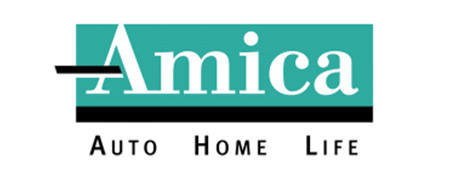Compare Car Insurance Deals
To save money on your car insurance, you need to compare the best deals available for what you need.
When shopping for car insurance, there is more to consider than price alone. Luckily, the best companies are often the most reliable, versatile – and carry some of the best rates.
Top Deals For Can Insurance
Here are our top picks for car insurance, simply click the buttons below to start your online application.
Learn About Car Insurance
When buying your insurance, consider what you are required to get, what is the right amount of coverage for you, and your insurance buying history.
What is the legal requirement for car insurance?
Almost every state requires drivers to carry liability insurance coverage. This covers damage done to other people and other people’s property – not you or your own. This ensures that you are able to pay for any damage that is your fault. In the few areas where liability insurance is not required, you need to show “proof of financial responsibility” if you don’t want to carry insurance. This is a little more flexible than insurance, but requires some personal wealth or means in order to show you can compensate someone who is hurt or financially burdened by your actions.
How can you calculate the right amount of cover you need?
You are responsible for any damages incurred in an accident that is your fault. Insurance policies cover you to a certain maximum, and you are personally responsible for any amount above that maximum (and for any deductible).
For example, if you carry the minimum amount of liability insurance required by the State of Florida, you are covered for bodily injury for the first $10,000 per person or $20,000 per accident (whichever is smaller). If an accident is deemed to be your fault, and costs $50,000 for damages against two people, you will be responsible to pay the remaining $30,000 out of pocket.
Add to that the cost of your own injuries and property (medical bills, a car payment for a broken vehicle, etc.) and it can easily soar above that minimum.
Since the cost of injuries can easily be much higher than the minimum, it is probably best to carry insurance covering as much as you can comfortably afford. After all, one accident can cost more than a lifetime of insurance premiums.
After an accident is not the time to realize that you are under-insured.
What types of auto insurance coverage are available?
Bodily Injury Liability, covers you for injuries sustained by the other driver and passengers in an accident that is your fault.
Personal Injury Liability covers for medical bills and lost wages suffered by you, in the event that you are the at-fault driver. It also covers passengers in your car.
If you damage property owned by another person, and you were at fault, Property Damage Liability will cover you up to a maximum amount. This includes damage to another car, or other property such as fences, buildings, etc.
If you carry Rental Car Coverage, your auto insurance will cover you in the case a car you have rented is damaged or stolen.
One way to increase the maximums is to use Stacked Uninsured Motorist Coverage. This allows you to stack up the maximums per car you insure onto one car in the event of an accident. This flexibility will cost more, but can drastically increase the amount for which you’re covered in an accident.
Uninsured Motorist Property Damage Coverage covers you if you are not at fault in an accident, but the other driver doesn’t have insurance. Yes, they are breaking the law, but this is little solace if you are hurt and need to cover medical bills and repairs to your car. For a little more, you can rest assured that you are covered even from the irresponsibility of others.
Many people forget that pets are not considered “passengers” in a collision. If you want to cover veterinary bills in the event of an accident, you need to include Pet Injury Coverage in your policy.
Collision coverage is another very popular product. This insures your car in the event that you are in a crash that is your fault. When you finance a car, there is a high chance that the financing company will require you to carry collision insurance. That protects you from a situation in which you are expected to pay for a car that is substantially damaged or written off, as well as having to pay for alternate transportation. Since finance companies can’t recuperate money for a car that is no longer worth what it was, you probably can’t finance a car unless you agree to carry collision coverage.
A less expensive option to collision insurance is GAP Insurance. GAP pays the difference between the value of a newly-totalled car and the balance remaining on the loan to buy it. In this case, you don’t get the car fixed or replaced – but you also don’t have to keep paying for a hunk of scrap metal.
If you want coverage for items you keep in the car – computers, equipment, audio system, etc. – you should consider Interior Vehicle Coverage.
Finally, if your car is less than a year old and you want to have it replaced with a brand new version in the event of an accident, then New Car Replacement will offer you that option.
Should you buy car insurance extras?
The answer to this question depends a lot on you, your car, and your situation. Roadside assistance can mean the difference between a harrowing experience on the side of a freeway, and substantial costs in having a malfunctioning car hauled out of a dangerous situation. Accident forgiveness can keep you at “accident free” status even if you’ve had one collision. This can mean substantial savings through safe-driving discounts.
Each of these costs a little more on your monthly policy, but it may only take one incident – accident or breakdown – to make it more cost-effective to carry these extras.
You want to compare your policy with others at least every 2 years
Drivers often pay more for their insurance than they have to. Once a driver buys a policy, it is easy to renew it each year and not think about how much it costs. For many though, substantial savings are available simply by shopping around every couple of years.
Insurance companies exist to make a profit, and profit often comes with gaining good customers, so there is competition out there. If you pay regularly and haven’t had an accident, a new insurance company might see you as a good bet, and offer a great deal. Even if you’re happy with your current company, it may be worthwhile to show them what you’ve been offered and allow them to match it to retain your business.


